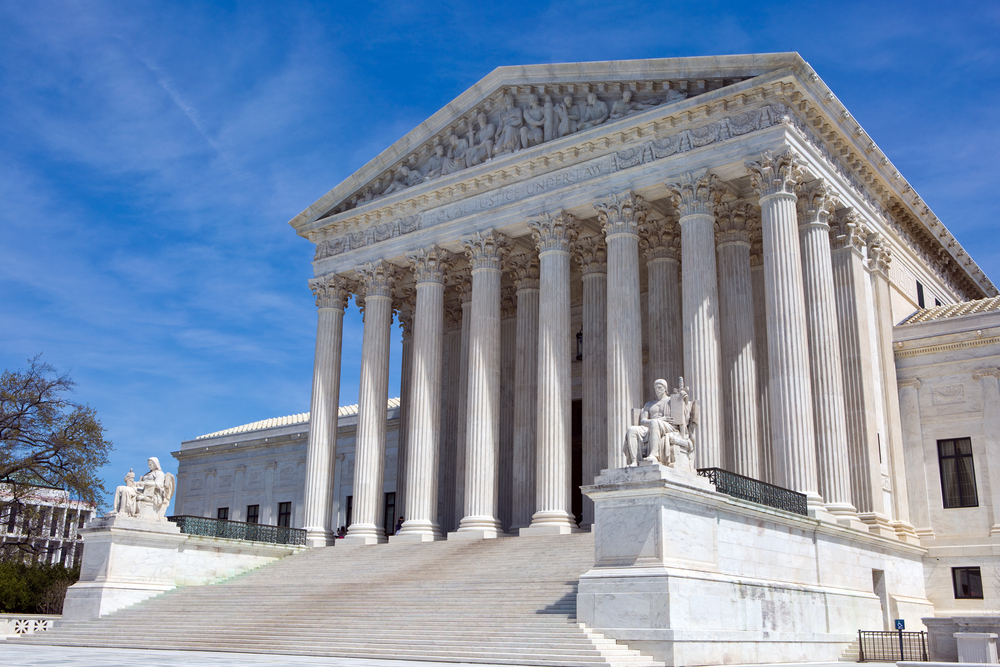US Supreme Court Declines Legality Of Excluding Jurors Based On Religion
The U.S. Court declines legality of excluding jurors based on religion, as it turned away an appeal from a Missouri agency. The case revolved around a lesbian worker's triumph in a workplace bias lawsuit against the Missouri Department of Corrections.
Bernard HorneFeb 22, 20241470 Shares22266 Views

The U.S. Court declines legality of excluding jurors based on religion, as it turned away an appeal from a Missouri agency. The case revolved around a lesbian worker's triumph in a workplace bias lawsuit against the Missouri Department of Corrections, where three potential jurors were dismissed due to their Christianviews that deemed homosexuality a sin.
The state's appeal followed a lower court's denial of their request for a new trial after a jury sided with plaintiff Jean Finney in her case against the Department of Corrections. The state contended that removing three individuals during jury selection, who expressed religious views, violated the 14th Amendment's promise of equal protection under the law.
Jean Finney, a lesbian employee of the Department of Corrections, alleged facing a pattern of discrimination and retaliation at the workplace due to her relationship with a male co-worker's former wife. Seeking monetary damages, Finney accused the agency of violating Missouri human rights laws, citing a hostile work environment and discrimination based on sex.
In 2021, the jury ruled in favor of Finney, awarding her $275,000 for her claims of sexual discrimination and a hostile work environment.
During the jury selection process, Finney's legal team probed possible bias by inquiring about religion, aiming to identify individuals with strong opinions on homosexuality. The attorneys asked the judge to remove three jurors based on their answers, arguing bias against gay people. Despite the judge acknowledging that two jurors claimed impartiality, she erred on the side of caution and excluded them.
Missouri officials objected, expressing concerns about potential religious discrimination during the jury selection process. However, the appellate court upheld the trial court's decision, emphasizing that the exclusion was based on the prospective jurors' views on homosexuality, not their Christian faith.
In appealing to the U.S. Supreme Court, Missouri officials argued for an extension of equal protection rights to religion, asserting that the Constitution should not tolerate exclusion based on the very first freedom protected by the Bill of Rights.
The Supreme Court, currently holding a 6-3 conservative majority, refrained from intervening in this case, leaving the legal landscape surrounding religious beliefs and jury selection without a definitive ruling. The decision comes in the context of the Court's recent expansive view on religious interests, notably seen in cases involving service refusal for same-sexweddings and a football coach's right to lead Christian prayers on the field after games.
Final Thoughts
The Supreme Court declined to consider a case concerning the admissibility of exclusion of potential jurors based on their genuine religious convictions. The legal dispute centered on a lawsuit filed by lesbian Jean Finney against the Missouri Department of Corrections, alleging sexual orientation-based discrimination in the workplace.
A jury found in favor of plaintiff Jean Finney in her lawsuit against the Missouri Department of Corrections during the initial trial. The state argued that the dismissal of three jurists for expressing their religious views violated the 14th Amendment guarantee of equal protection under the law of the United States Constitution.
Jump to
Latest Articles
Popular Articles